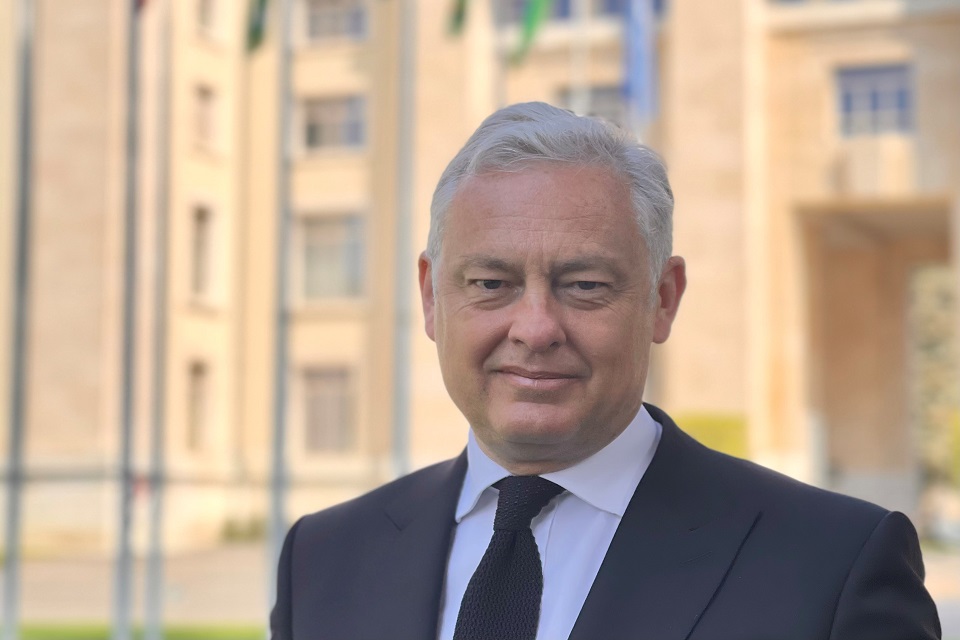World Trade Organization: Mozambique’s Trade Policy Review, July 2024: UK Statement
The UK's Permanent Representative to the WTO and UN in Geneva, Simon Manley, gave a statement during Mozambique's WTO Trade Policy Review.

Chair, let me offer a warm welcome to the delegation from Mozambique led by Mr. Silvino Augusto José Moreno, Minister of Industry and Commerce. Let me also express my gratitude to colleagues from the WTO Secretariat for their respective reports, to the Chair, as ever, and to our Discussant, Mr. Li Chenggang, for his insightful comments.
Economic Analysis
-
I’d particularly like to thank the delegation and the secretariat for all of the hard work which goes into a Trade Policy Review. The secretariat and government reports offer invaluable insight into Mozambique’s trade policies and wider economy.
-
Mozambique has faced various shocks since the last TPR in 2017: climate, COVID-19, ongoing conflict. In order to accelerate economic growth and reduce poverty, Mozambique is progressing with some key economic reforms including as part of the IMF programme initiated in 2022. We were also pleased to read that the government is taking steps to address the recent public sector wage bill overrun discussed in the reports.
-
I am pleased to say that our development assistance has been supporting Mozambique’s emergency and humanitarian response, basic service delivery, and economic reforms to strengthen domestic revenue mobilisation, debt and State Owned Enterprises transparency. These economic reforms were crucial for the International Monetary Fund (IMF), World Bank and African Development Bank (AfDB) decisions to resume programmatic support in 2022 and 2023.
-
The UK deeply appreciates the insights afforded to us by Mozambique’s engagement with this important transparency exercise, including their answers to our Advanced Written Questions.
-
They allow us to better understand Mozambique’s trade policies, which in turn, allow us to understand how we can work together to further improve our trading relationship, which has seen rapid growth in the last two years. In 2023, UK exports to Mozambique grew by over 100%, whilst our imports from Mozambique increased in value by 175%.
Southern African Customs Union Member States (SACUM) Economic Partnership Agreement (EPA)
-
Close cooperation between our two countries, and regional partners, has enabled this rapid growth. We are grateful to Mozambique for its constructive work implementing the SACU-Mozambique-UK Economic Partnership Agreement, which came into force in 2021 and underpins our trading relationship with Mozambique, as well as Botswana, Eswatini, Lesotho, Namibia and South Africa.
-
The UK is fully committed to the EPA, principally as a means of increasing trade and investment to promote sustainable growth and poverty reduction in southern Africa. We look forward to holding the first EPA Joint Council and working with Mozambique and SACU partners to continue implementation and look towards deepening the Agreement and enhancing the benefits for businesses and consumers in the UK and Southern Africa.
-
Last month we celebrated the first anniversary of the UK’s Developing Country Trading Scheme. DCTS has now been in force for one year, providing improved market access to 65 developing countries – home to 3.3 billion people – including Mozambique. Free and open trade is a crucial tool in helping Least Developed Countries (LDCs) to drive economic growth and support sustainable development, and the DCTS helps Mozambique to export to the UK and play a more active part in fast growing global supply chains.
WTO
-
Chair, given the benefits trade can bring to LDCs, the UK was pleased to see that the reports reference Mozambique’s commitment to uphold the principles of a rules-based, predictable and transparent trading system; and equally, to hear Minister Moreno’s reference this morning to Mozambique’s objective to create a stable and sustainable environment for trade. Mozambique’s commitment is evidenced by the significant role global trade plays in the Mozambique economy, with aggregate two-way trade flows ranging from 92.8% and 137.7% of GDP between 2017-23.
-
Mozambique’s constructive work within the WTO itself is also praiseworthy. In particular, the UK welcomes the role which Mozambique plays on Trade Facilitation; Mozambique is a focal point within these important discussions. We look forward to continuing to work together with Mozambique within the Committee on Trade Facilitation, ensuring that the WTO continues to work for LDCs and Developing Countries. We were also pleased to see Mozambique enhancing its participation at the WTO through the Informal Working Group on Micro Small and Medium-sized Enterprises (MSMEs), and the Dialogue on Plastics Pollution.
-
The UK is also keen to hear more about Mozambique’s efforts in promoting inclusive economic development in the future. As one of the co-chairs of the WTO Informal Working Group on Trade and Gender, I would welcome hearing more about Mozambique’s initiatives, in the spirit of sharing best practice and learning in this group.
African Continental Free Trade Area (AfCFTA)
-
Chair, we would like to take this opportunity to commend Mozambique for its Accession to another multilateral body: the African Continental Free Trade Area. The UK is a firm supporter of the AfCFTA, which has the potential to be a game-changer for intra-regional trade across the continent and thereby inclusive economic growth and development.
-
The UK was proud to be the first non-African country to sign a Memorandum of Understanding with the AfCFTA Secretariat, and through our development assistance, we are working closely to support the AfCFTA Secretariat and Member States to get the agreement up and running.
-
Finally Chair, let me thank Mozambique for their full cooperation with this important exercise in transparency. I would particularly like to thank the delegation for their hard work answering the UK’s questions, hard work which I hope didn’t distract them from celebrating the Dia da Independência last week.